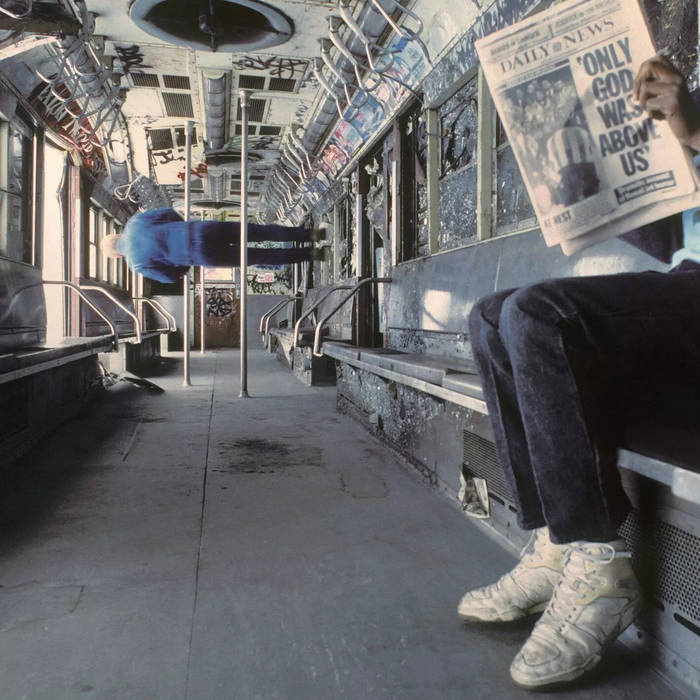The princes of indie rock, Vampire Weekend, known for their preppy polo shirts and affinity for New England, have returned to present their fifth studio album Only God Was Above Us.
Combining classical, chamber-pop, afrobeats and alternative, while peppering in witty lyrics with handfuls of literary references, Vampire Weekend has always been distinguished for their unique sound. Their 2008 self-titled debut was refreshing, catchy, and bright, and the band was quickly catapulted out of their Philosophy 101 classes at Columbia University and onto stages around the world. While never necessarily escaping claims of being “the whitest band,” the band continued to make music.
Their sophomore album Contra, released in 2010, was a push into the frontier of pop, as the band produced clever lyrics and jangling melodies, and their 2013 album Modern Vampires of the City conveyed their developing emotional maturity, mortality, and fame, officially severing ties to their perceived elitism and WASP-y aesthetics and establishing them as an established and celebrated indie rock act. The band later took a break, with multi-faceted composer and producer Rostam Batmanglji leaving as a member in 2016. He continued to work as a collaborator on songs featured on their fourth album “Father of the Bride,” which was released in 2019 and features songs both sunny and joyful. “Only God Was Above Us” continues to showcase the band’s indescribable charm, while moving towards hazier creative liberties and reckoning with the idea of legacy.
The first single “Capricorn” is somewhat of a departure from the stereotypical Vampire Weekend sound. It starts out folksy, with frontman Ezra Koenig strumming on his acoustic guitar while bassist Chris Baio accompanies him and drummer Chris Tomson lays down a mellow beat. It uses some of their trademarks like the infusion of the baroque piano and violin, but also creates a distorted, hazy noise, veering in and out of clarity while Koenig contemplates the future of the world. They continue, with the song “Connect,” which features a drumline interpreted from “Mansard Roof,” the first track from their first album, while Koenig plays a sprawling piano scale. It begins jumpy and upbeat, cut by the echoing melodies that “Ooh” and “Aah” like a church choir, leaning into the album’s existential theme. The band uses the track as a playground for experimentation, choosing to completely switch the simplicity of the piano keys and bass with an autotuned Koenig blaring lyrics against some synths, similar to something BROCKHAMPTON would make in 2017. The distorted production isn’t a complete disservice, but feels like an abrupt change at first-listen.
“The Surfer’s” mellow bassline and beat nod as the band’s appreciation of reggae, but quickly turns melancholic as the piano kicks in. It carries a somber tone as Koenig sings about New York’s unfinished Water Tunnel No. 3, among other failed professional careers: a scammed fortune teller, an injured bodybuilder, and a slow long distance runner. Is one to look at these as failures or hope for recovery? But the gloom is quickly cut by the next single “Gen-X Cops.” Similar to “Connect,” the song features the band’s attempt to experiment with production. It is disruptive, and at first, a little awkward, with its high-pitched distortion that scatters electric guitar and bass throughout, and later brings back the piano. Though not dejected like “The Surfer,” Koenig continues the contemplative tone; how “each generation makes its own apology.” The band reckons with the weight of previous generations and what comes after. Much of Vampire Weekend’s work has to grow with the listener. At first, one may be put off by the stinging strings, but pleased to hear how harmonious it develops by the end.
The band keeps in touch with the generational theme in the song “Pravda,” a newspaper that circulated in the Soviet Union, and literally the Russian word for “truth.” It deals with ancestry, a potential nod to Koenig and Tomson’s Eastern European heritage, as the lyrics playfully sing about Uncle Henry and Aunt Ludmilla from Moscow. It juxtaposes itself from “Gen X Cops” and rejects the inevitable, generational fear of getting old and making mistakes by reflecting on their ancestry. Anyone can get up and move, like their families did before them, and so on.
Only God Was Above Us is intimate, as is most of the band’s work, but here they encounter a different inquisitiveness in legacy: what has remained from the world’s ancestors and what will humanity endow its successors? The band has matured from their once sophomoric themes. Fans of Vampire Weekend, new and old, may have trouble adjusting to the newfound sound of the band’s experimentation; “Only God Was Above Us” is sometimes similar to their older work, and sometimes feels pulled from entirely different bands. But this has always been a trait of Vampire Weekend, taking bits and pieces from various genres and mixing into their own music. Listeners may need to take time to grow with the funkier, warped guitars and synths, but this is a good continuation of the band’s already impressive discography.
Grade: A-
Listen to Only God Was Above Us here:

